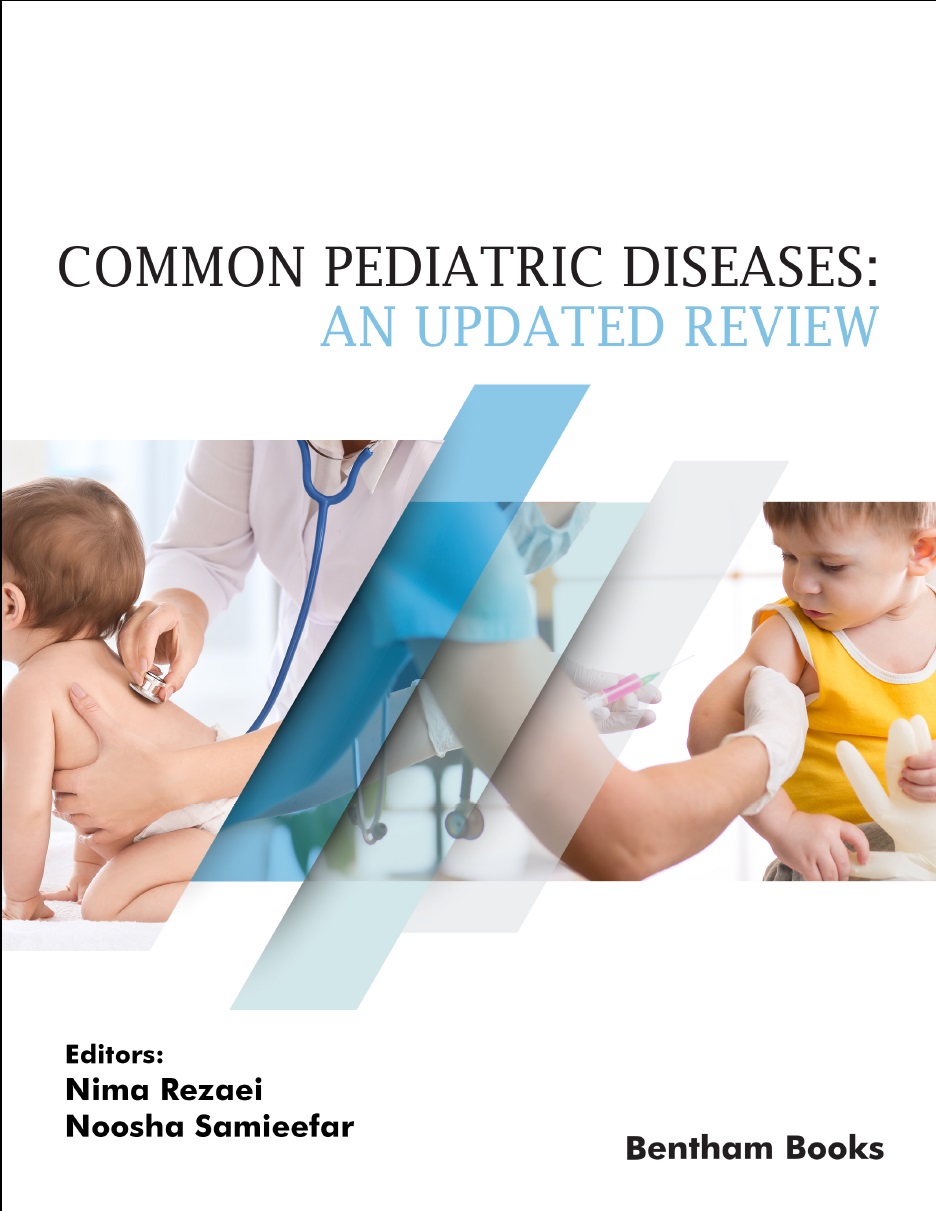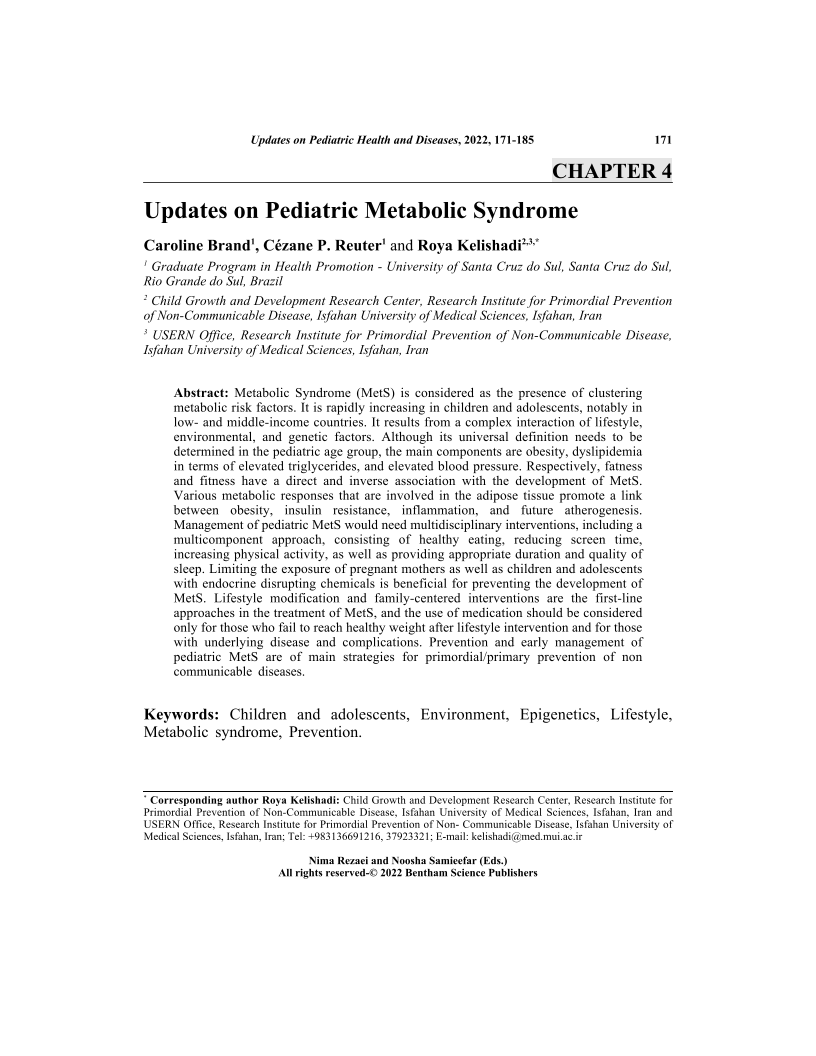Updates on Pediatric Metabolic Syndrome

- Authors: Caroline Brand1, Cézane P. Reuter2, Roya Kelishadi3
-
View Affiliations Hide Affiliations1 Graduate Program in Health Promotion University of Santa Cruz do Sul, Santa Cruz do Sul, Rio Grande do Sul, Brazil 2 Graduate Program in Health Promotion - University of Santa Cruz do Sul, Santa Cruz do Sul, Rio Grande do Sul, Brazil 3 Child Growth and Development Research Center, Research Institute for Primordial Preventionof Non-Communicable Disease, Isfahan University of Medical Sciences, Isfahan, Iran ⋅ USERN Office, Research Institute for Primordial Prevention of Non-Communicable Disease, Isfahan University of Medical Sciences, Isfahan, Iran
- Source: Common Pediatric Diseases: an Updated Review , pp 171-185
- Publication Date: April 2022
- Language: English
Updates on Pediatric Metabolic Syndrome, Page 1 of 1
< Previous page | Next page > /docserver/preview/fulltext/9789815039658/chap4-1.gif
Metabolic Syndrome (MetS) is considered as the presence of clustering metabolic risk factors. It is rapidly increasing in children and adolescents, notably in low- and middle-income countries. It results from a complex interaction of lifestyle, environmental, and genetic factors. Although its universal definition needs to be determined in the pediatric age group, the main components are obesity, dyslipidemia in terms of elevated triglycerides, and elevated blood pressure. Respectively, fatness and fitness have a direct and inverse association with the development of MetS. Various metabolic responses that are involved in the adipose tissue promote a link between obesity, insulin resistance, inflammation, and future atherogenesis. Management of pediatric MetS would need multidisciplinary interventions, including a multicomponent approach, consisting of healthy eating, reducing screen time, increasing physical activity, as well as providing appropriate duration and quality of sleep. Limiting the exposure of pregnant mothers as well as children and adolescents with endocrine disrupting chemicals is beneficial for preventing the development of MetS. Lifestyle modification and family-centered interventions are the first-line approaches in the treatment of MetS, and the use of medication should be considered only for those who fail to reach healthy weight after lifestyle intervention and for those with underlying disease and complications. Prevention and early management of pediatric MetS are of main strategies for primordial/primary prevention of non communicable diseases.
-
From This Site
/content/books/9789815039658.chap4dcterms_subject,pub_keyword-contentType:Journal -contentType:Figure -contentType:Table -contentType:SupplementaryData105

